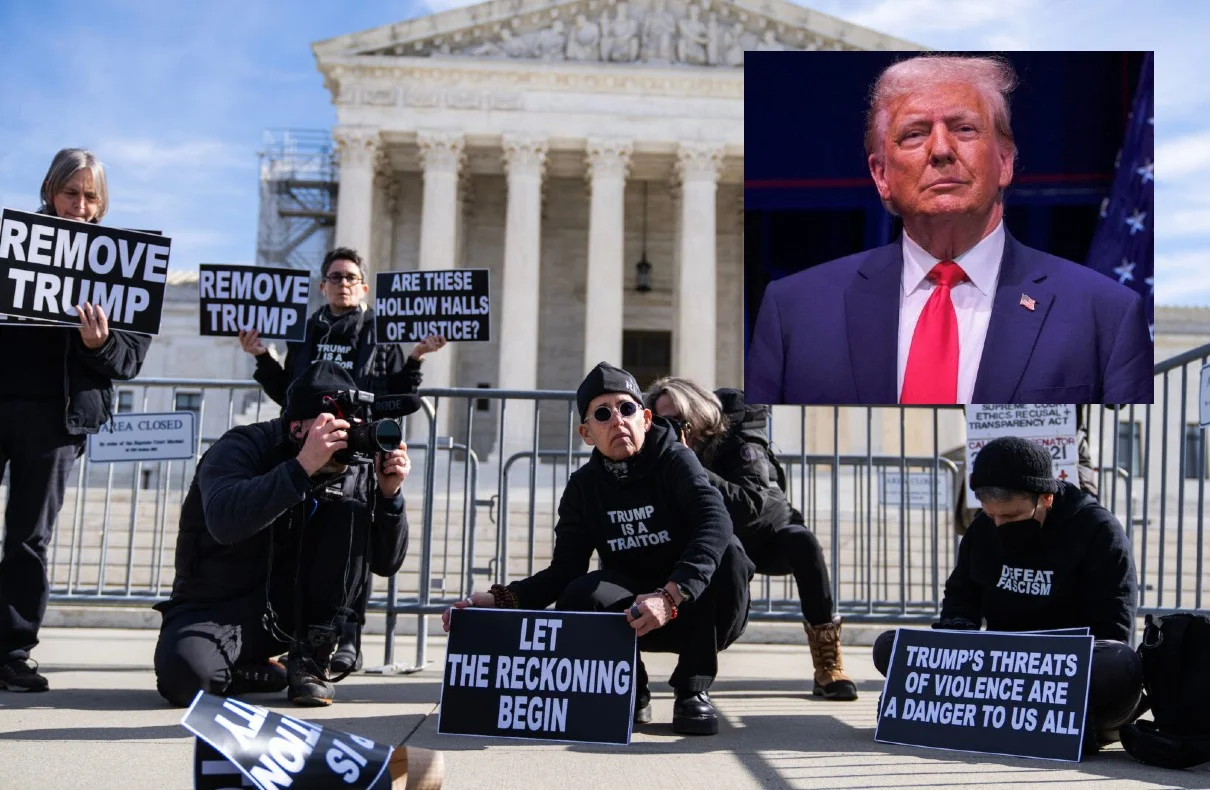The U.S. Supreme Court recently heard oral arguments regarding the eligibility of former President Donald Trump to appear on Colorado’s primary ballot. The case, Trump v. Anderson, revolves around whether Trump’s alleged involvement in the January 6, 2021 Capitol riot qualifies as an “insurrection” under the 14th Amendment, making him constitutionally ineligible to run for president.
The Supreme Court’s review of Trump v. Anderson revolves around the interpretation of the 14th Amendment, specifically Section 3, which states that no person who has engaged in insurrection or rebellion against the United States shall hold any office under the government. The case questions whether Trump’s alleged role in inciting the Capitol riot qualifies as an “insurrection” under this constitutional provision.
The controversy began when the Colorado Supreme Court ruled that Trump was ineligible to appear on the state’s primary ballot due to his alleged involvement in the insurrection. Trump’s legal team strongly criticized this decision, labeling it as “anti-democratic.” The case then made its way to the U.S. Supreme Court, where the justices heard oral arguments on February 8, 2024.
During the oral arguments, both sides presented their cases before the justices. The attorneys representing Colorado voters argued that Trump’s actions on January 6, 2021, amounted to insurrection and therefore made him ineligible to run for president. On the other hand, Trump’s legal team contended that the 14th Amendment’s language did not explicitly include the president and that the decision to disqualify him from the ballot should be left to Congress.
Explosions in Clinton Township: A Comprehensive Analysis
The justices raised several important questions and concerns during the hearing. Justice Elena Kagan questioned whether it was fair for a single state to decide who gets to be the president, emphasizing the national implications of the case. Chief Justice John Roberts warned about the potential consequences of allowing state courts to disqualify candidates, as it could lead to a few states deciding the outcome of a presidential election.
Justice Brett Kavanaugh focused on the definition and interpretation of “insurrection” in the 14th Amendment, asking whether it is the states or Congress that can ban insurrectionists from holding federal office. Justice Ketanji Brown Jackson expressed concern over the omission of the word “president” in Section 3, suggesting that the framers might not have intended it to apply to the highest office in the land.
The reactions to the oral arguments were varied. Fox News legal correspondent Shannon Bream noted that several justices seemed to be leaning in favor of Trump, while others expressed skepticism about the implications of disqualifying a candidate from the ballot. Legal expert Jonathan Turley observed that the attorney representing Colorado voters faced a tough reception, particularly from the left-leaning justices.
The Supreme Court’s ruling in Trump v. Anderson carries significant implications for the future of presidential eligibility and the interpretation of the 14th Amendment. If the Court sides with Trump, it could set a precedent that restricts the ability of states to disqualify candidates based on their alleged involvement in insurrection or rebellion. On the other hand, if the Court upholds Colorado’s decision, it may strengthen the authority of states to determine the eligibility of candidates for public office.
National Guard Helicopter Crash Near Texas Border, 2 killed, 1 Injured: Officials
One concern raised during the hearing was the potential for partisan misuse of the disqualification power. Chief Justice Roberts warned about the possibility of states using disqualification proceedings to remove candidates from opposing parties, leading to a skewed electoral process. The Court’s decision will likely provide clarity on whether the disqualification power lies primarily with Congress or if it can be exercised by states independently.
The timing of the Supreme Court’s decision is also crucial. With Colorado’s presidential primary approaching on March 5, 2024, any ruling that disqualifies Trump from the ballot would nullify any votes cast in his favor. This could have a significant impact on the outcome of the primary and potentially influence the trajectory of the 2024 presidential election.
The Supreme Court’s consideration of Trump v. Anderson raises fundamental questions about the interpretation of the 14th Amendment and the power of states to disqualify candidates based on alleged involvement in insurrection. The oral arguments presented compelling arguments from both sides, with justices expressing concerns over the potential consequences of their decision.
As the Court deliberates on this crucial case, the nation awaits a ruling that will shape the future of presidential eligibility and the balance of power between states and Congress. The decision will have far-reaching implications for the 2024 presidential election and set a precedent for future challenges to candidates’ eligibility.
The legal showdown before the Supreme Court underscores the importance of constitutional interpretation and the role of the judiciary in upholding democratic principles. Regardless of the Court’s ruling, it will undoubtedly leave a lasting impact on the American political landscape and the understanding of the 14th Amendment’s application in the context of presidential elections.
